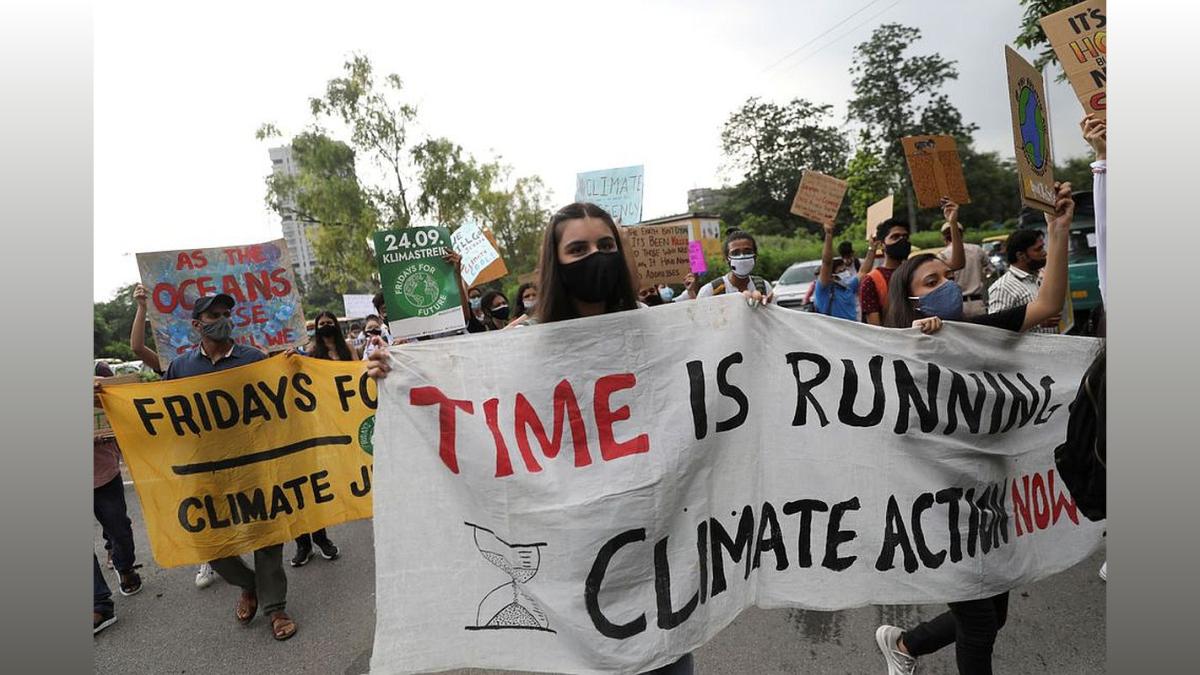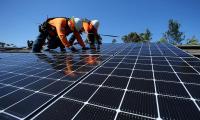ADB Praises India's Fossil Fuel Subsidy Reforms
The Asian Development Bank (ADB) commends India's progress on fossil fuel subsidy reform since 2010, highlighting a 'remove, target, and shift' approach that reduced subsidies and boosted renewable energy.

New Delhi, Nov 2 (PTI) India has since 2010 made noteworthy progress on fossil fuel subsidy reform through a calibrated 'remove', 'target', and 'shift' approach, the Asian Development Bank (ADB) said in a new report.
"By carefully balancing the combined effect of three key policy levers - retail prices, tax rates, and subsidies on selected petroleum products - the country was able to reduce its fiscal subsidy in the oil and gas sector by 85 per cent, from an unsustainable peak of USD 25 billion in 2013 to USD 3.5 billion in 2023," it said.
In its 'Asia-Pacific Climate Report', ADB said India gradually phased out the subsidy on petrol and diesel (from 2010 to 2014) and carried out incremental tax increases (from 2010 to 2017), which created fiscal space to increase government support for renewable energy, electric vehicles, and strengthening of electricity infrastructure.
"The additional tax revenues from increases in excise duty on petrol and diesel from 2014 to 2017, a period of low international crude oil prices, were also redirected to improve access and target subsidies for expanding the use of liquefied petroleum gas (LPG) among the rural poor," it said.
Subsidies for LPG have since grown and "may now require efforts to improve targeting and to incubate non-fossil-fuel cooking alternatives," it said.
From 2010 to 2017, Government of India introduced a cess (tax) on coal production and imports. Around 30 per cent of the cess collections were channelled to a national clean energy and environment fund that supported clean energy projects and research.
ADB said the cess significantly contributed to strengthening the budget of Ministry of New and Renewable Energy during 20102017 and provided the initial funds for the country's Green Energy Corridor scheme and its National Solar Mission, which helped bring down the cost of utility-scale solar energy and fund many off-grid renewable energy solutions.
"However, with the introduction of Goods and Services Tax (GST) in India after 2017, the cess on coal production and imports was subsumed within the country's GST compensation cess, the flows of which were redirected to compensate states for revenue losses associated with the new tax regime," it said.
As a result of India's subsidy reforms and taxation measures, the country's fossil fuel subsidies plummeted from 2014 to 2018.
"Its renewable energy subsidies also reached a peak in 2017 but are now once again growing, with major support schemes targeting solar parks, state-owned enterprises (SOEs), and distributed renewable energy," the report said.
"By carefully balancing the combined effect of three key policy levers - retail prices, tax rates, and subsidies on selected petroleum products - the country was able to reduce its fiscal subsidy in the oil and gas sector by 85 per cent, from an unsustainable peak of USD 25 billion in 2013 to USD 3.5 billion in 2023," it said.
In its 'Asia-Pacific Climate Report', ADB said India gradually phased out the subsidy on petrol and diesel (from 2010 to 2014) and carried out incremental tax increases (from 2010 to 2017), which created fiscal space to increase government support for renewable energy, electric vehicles, and strengthening of electricity infrastructure.
"The additional tax revenues from increases in excise duty on petrol and diesel from 2014 to 2017, a period of low international crude oil prices, were also redirected to improve access and target subsidies for expanding the use of liquefied petroleum gas (LPG) among the rural poor," it said.
Subsidies for LPG have since grown and "may now require efforts to improve targeting and to incubate non-fossil-fuel cooking alternatives," it said.
From 2010 to 2017, Government of India introduced a cess (tax) on coal production and imports. Around 30 per cent of the cess collections were channelled to a national clean energy and environment fund that supported clean energy projects and research.
ADB said the cess significantly contributed to strengthening the budget of Ministry of New and Renewable Energy during 20102017 and provided the initial funds for the country's Green Energy Corridor scheme and its National Solar Mission, which helped bring down the cost of utility-scale solar energy and fund many off-grid renewable energy solutions.
"However, with the introduction of Goods and Services Tax (GST) in India after 2017, the cess on coal production and imports was subsumed within the country's GST compensation cess, the flows of which were redirected to compensate states for revenue losses associated with the new tax regime," it said.
As a result of India's subsidy reforms and taxation measures, the country's fossil fuel subsidies plummeted from 2014 to 2018.
"Its renewable energy subsidies also reached a peak in 2017 but are now once again growing, with major support schemes targeting solar parks, state-owned enterprises (SOEs), and distributed renewable energy," the report said.
You May Like To Read
TODAY'S MOST TRADED COMPANIES
- Company Name
- Price
- Volume
- Vodafone-Idea-L
- 11.65 (+ 3.56)
- 106772451
- Alstone-Textiles
- 0.28 ( -3.45)
- 44187760
- Mangalam-Industrial
- 0.88 ( -2.22)
- 39177573
- Sunshine-Capital
- 0.27 (+ 3.85)
- 35956340
- GMR-Airports
- 104.40 (+ 6.37)
- 30453005





